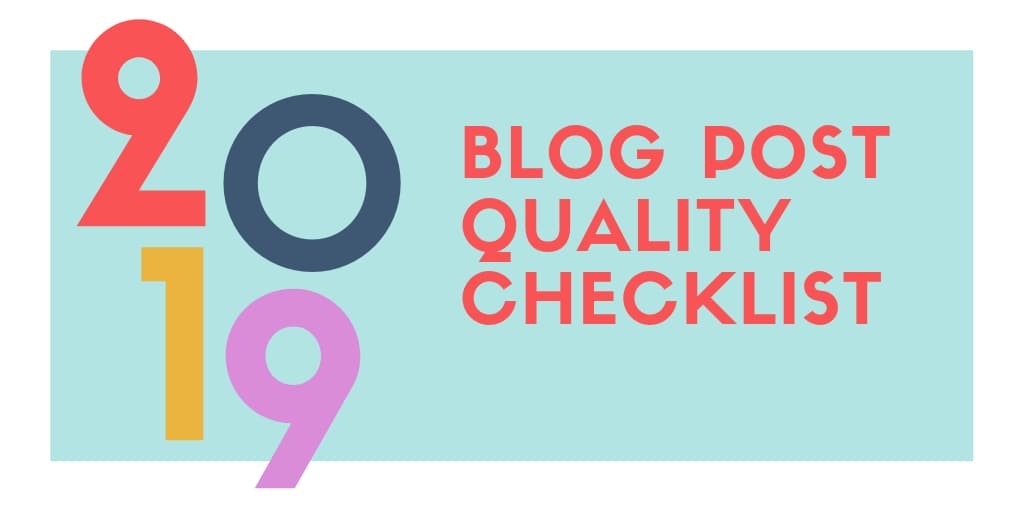Blog posts are seemingly the newest form of informational writing.
Blogs are entities wholly existent on the internet and they claim only to the authority their readers grant them. In these senses then the medium of blogging is very liberal, yet their popularity and disparity between blog entries are restricting.
Hence to write a good piece the author must maintain a balance between giving interesting new information and being relevant in the ever-expanding space of online media. We would love to give the best advice on maintaining this balance in our entry.
Notions of relevance and interest: The first thing in our presentation is to make the notions of relevance and interest in the article’s information clear. It is an unfortunate issue that very often posts do not fit well with each other in a blog or a series.
The reasons for this discrepancy are various but most often they are due to misrepresented information within the post or irrelevance of the information in the text to the bigger series. Thus each author must disambiguate his contributions role before the content is written and published.
Context: Primarily, each blog post exists in context. An author can write for someone else’s platform, or lead his own multi-piece column of information. Each of these cases brings with it a certain approach to crafting the theses or the main idea for an article.
Next, the author must be aware that predominantly blog posts are read by people looking for information. The reader’s idea of the information they are looking for can vary from absolutely certain to absolutely amorphous, yet in either case, the reader will most likely rely on a search engine when looking for answers.
SEO: Hence the link between the text and its readership lays through search engine optimization(aka SEO). Thus the writer must pay attention to the words they use regarding the “hot” concepts on the internet in general, their target audience and the blog in particular.
Now that the technical things are presented we would further like to give some thoughts on how to make a piece stand out within the ocean of internet verbiage.
Two things will be proposed. We say that the content must be specifically appropriate to some audience and fit the niche. Having all of the points from before in mind we can say that posts are valuable only if they are referenced on the internet.
The author must keep in mind that contributions must be referenced by other posts, by reader’s comments, and by other websites.
Know Where Your Post Is
Before being published the text must be written, obviously. Yet between writing and publishing the author must find out where to contribute. Hence, the author can choose to publish her post under another blog’s umbrella or as part of her own series of entries. Each of these cases dictates the content of the entry. Hence we will consider both cases.
Suppose, the author chooses to write for someone else. Each platform has its rules. These rules can include general coherence suggestions and ethical standards the site aspires to. The last one is actually very important.
The moderator is motivated by external forces to make sure that the quality and focus of their blog is maintained. This means that both in terms of politics and etiquette the post must conform entirely. Publications judged unethical by the moderator will be banned immediately, which may lead to the writer being forbidden from contribution in the long run.
To avoid this, read the rules of the website carefully. Read them again, again and again. If anything is unclear do the following two things: read other posts while looking for precisely the signs of the ethical dilemma you are facing, and ask clarifying questions of the moderator.
Be polite in asking questions, each moderator thinks they are masters at writing rules and are very insecure about ambiguities.
Although the coherence of the bigger platform is usually a vague imperative, the author should still determine it as concretely as possible. A post may soon be forgotten if it falls out of the blog’s bigger picture and if it does not move the discussion of the journal further.
Know that each blog has a vector or an agenda. Each written piece is a point of this vector or answers to a part of the agenda. Otherwise, the text will fall into internet obscurity.
If the previous conditions seem too rigorous avoid them by maintaining your own blog. Beware, however, that writing on a personal website is even more demanding in terms of content and is much more straining on the search for an audience.
Each blog post on a personal blog, or for a personal column, must be a continuation of older texts. In short, a personal blog gives a story. It must make ties between content of different posts and these ties must be simultaneously unique and spot-on, read more.
In other words, the reader must see between two consecutive pieces a connection and the connection must be striking. The reader should be surprised they have not seen the connection before and struck by how well your texts imply it.
Finally, the author ought to pay attention not only to consecutive posts but to the information given by his work as a whole. No post should contradict another and no post should dwell on ideas presented before.
#ultimate blog post checklist #content writing checklist
Know How to SEO
The readership can be separated into two segments the regular audience and internet-beasts. The intention is to increase the number of the first and to maintain the number of the second relatively fixed.
Yet, in practice, it is the case that the first type is always dwindling and hence must be supplemented by the increase in the number of internet beasts. For them, the blog does not exist before they opened its link.
The links are found through Google. Google orders its presentation of the link via a mechanism called SEO. This creature has a complex decision process, but roughly it considers the query of the searcher and has a preconception of which words best fit this query.
This set is not fixed, so an author may never know with certainty which words must be in their text for it to be found. There is a way to increase awareness at a given time, however.
Research other web writing on similar topics. The post must be filled with concepts which it inherits from other texts it is linked to. Furthermore, by using appropriate concepts the author may manipulate which sub-categories the post will belong to.
For example, if an article is about art, it must further be about an art period, an art school and an artistic concept. Unfortunately, when picking these concepts human-level speculative understanding of terms is insufficient. A person’s vision of the concept must be translated into the machine’s language.
There are quantitative tools like Google Analytics and Google Trends which show which words are “trending” in which categories and give qualities of these trends. Consequently, SEO systems regard the text in relationship to the trends, words, and qualities of these statistics. Hence the author checks whether their text has the signs of relevance necessary for the machine to see.
A word of caution…
Simply putting in “hashtag” concepts and trending words is not sufficient.
Most SEO systems are too complicated to be manipulated in such a way, and even if their judgment is bypassed the text is written for humans. Hence, using relevant concepts must organically fit with the flow of the writing. They must be grammatical and meaningful.
Find Your Niche
Blogs became popular in the early 2000s and almost immediately there was overcrowding. Now it’s 2019 and there was only decay. The market of websites, online articles, and the news is so over saturated people are becoming apathetic and ignorant of them. Thus to maintain any hope for a readership the post must be relevant, interesting and gorgeous.
When the place for the contribution to be published is chosen and the key concepts for it are identified the author picks an idea. The idea must be informative. It is informative if it gives an original perspective and the perspective is presented in an appealing way.
In other words, the author’s text has to seem to arise from the soul and be special. Hence it must reveal a passionate opinion and be written in a way that presents clarity in its approach. Usually, this is not achieved on a first dozen tries and is most usually accomplished by writing with a small set of concepts in mind.
Hence every post must fit within a small niche with all the other ones. To avoid doubling up on content between posts each text must be precise and highlight a particular facet of the bigger topic.
Readers are keen to notice filler and “clickbait”. The filler is the type of text that is obviously present just to meet a certain word count, such as repetitive sentences, uninformative paraphrasing, word salad and so on.
Clickbait is usually defined by a catchy title, but the “bad” clickbait happens when the content of the article does not expand on the title. Often, the title of a post is exciting, but the text itself is dull, repetitive or, even, absolutely irrelevant to the title.
In light of this, writers pay attention to making the titles suspenseful relative to the content, and the content conclusive relative to the title. A thesis must be picked clearly and stated strongly. The relevant arguments for presenting, supporting, expanding and motivating the thesis must be written.
Bring it All Together
All a post must do is not fall into internet obscurity. This minimal task requires maximal effort. It can be achieved only if all our points are taken to the writing and then some.
This additional “some” is unique for a writer and topic specific, but things must also be considered even in bringing together various notions from our guide. Make it a goal that the post must be good enough for others to use it as a reference.
Still, the references should be diverse, they must be given in comments on the blog itself and other resources, they must be cited by other posts and all of these things must be done over and over again by different people.
This means that the writing has to maintain its relevance and not to dull with time. The first point regards the content of the writing. As we mentioned it must contain key concepts, it must be original and it must present a niche view.
All of these facets must feed into each other in a way to provide a most laconic read. People on the internet wish to move through content quickly, thus any post must be the best shortest answer to its relevant query. Thus the reader must enjoy what he reads and bring out what they demanded from the read. In short, the text must be organic and effective.
Furthermore, there are stylistic nuances. The tone of voice must be consistent throughout the article and it should have an appealing style . Of course, writing a post is not writing a book, but given the overabundance of online medias writing posts aspires to be as difficult.
Picking the tone of voice directly comes from aspiring to reach a certain target audience and from intending to excite that audience. The word choice must both maintain grammaticality, meaningfulness and refer to the trending concepts.
Once again, these things must be done together organically.
#blog process checklist #what to do after publishing a blog post
Conclusion
According to Wired, to write a good post the author must be part writer, part sociologist and part a marketing specialist. An article is good only if it refers to topics relevant for its time and with concepts trending.
In the long, run the value of a post depends on its popularity on the WEB. It, in turn, is composed of the types of mentions the posts get on the internet. The mentions must be diverse, positive and abundant.
All this can be achieved keeping in mind our technical advice, but only if the post arises from genuine opinion and passion.
Author Bio:
Joey Feldman works at EssayPro – essay writing service. He is a young technologist with experience in marketing and SEO and a master’s degree in computer science. This guy is always looking for new ways technologies can be used to improve something.Being a passionate writer, Joey wants to share his experience and make new connections.
Twitter: @JoeyFeldman5




